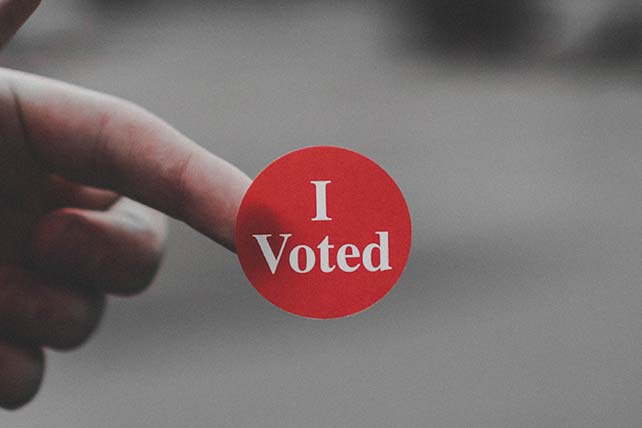NASHVILLE (BP) – Southern Baptists and other citizens in five states will make decisions in the Nov. 8 elections on abortion policies that vary from proposals intended to protect preborn children to those that would guarantee far-reaching access to the lethal procedure.
The ballot initiatives have taken on heightened significance since the U.S. Supreme Court returned the regulation of abortion to the states in a June decision. In that ruling, the high court overturned the 1973 Roe v. Wade decision that legalized abortion throughout the country.
Voters in Kentucky and Montana will cast ballots on pro-life measures, while citizens of California, Michigan and Vermont will determine the fate of proposed constitutional amendments that would protect abortion rights.
Decisions on these proposals will come in the wake of prohibitions on abortion taking effect in 15 states since the Supreme Court reversed Roe. It is anticipated about half of the 50 states will enact laws that prohibit abortion either throughout pregnancy or at a stage of pregnancy, although courts have blocked the enforcement of some for now.
Southern Baptist ethics leader Brent Leatherwood pointed to the role the church’s message can play in ballot proposals.
“Now as much as ever, our churches must continue proclaiming the truth about the dignity of every life, particularly the unborn,” said Leatherwood, president of the Ethics & Religious Liberty Commission. “Doing so will stir the hearts of individuals to act on behalf of those who have no voice.
“These statewide initiatives and amendments present opportunities to apply those principles by either establishing a legitimate culture of life in our state laws or preventing them from becoming further entrenched as pro-abortion destinations,” he told Baptist Press in written comments.
“Voting in such a way that respects and protects the sanctity of life is one helpful avenue Baptists can engage what the [Baptist Faith and Message] calls ‘the means and methods for the improvement of our society (Article XV),’” Leatherwood said. “And what an improvement it would be when we reach a moment where each preborn life has the opportunity to take his or her first breath!”
In Kentucky, voters will have the opportunity to approve an amendment that will clarify the state constitution is not to be interpreted “to secure or protect a right to abortion or require the [public] funding of abortion.”
In an advisory regarding Amendment No. 2, Kentucky Attorney General Daniel Cameron said the measure would not prohibit abortion in the state if passed. It “simply means that decisions on regulating abortion will be made” by legislators, not judges, Cameron said. Kentucky law currently prohibits abortion except to protect the mother’s life or to avert “the serious, permanent impairment of a life-sustaining organ” in the mother.
Todd Gray, executive director of the Kentucky Baptist Convention (KBC), told Baptist Press, “Kentucky Baptists have an historic opportunity to vote our pro-life convictions on November 8th.”
Amendment No. 2 “essentially protects the pro-life laws that have already been passed by our state lawmakers” and bans taxpayer funds from paying for abortions, Gray said in written remarks.
The KBC “is part of an alliance that is working to pass the amendment,” he said. “Legalized abortion is the greatest human rights atrocity of our day. We can protect children from abortion by voting ‘yes’ on Amendment 2.”
Montana’s citizens will vote on a referendum known as the Born-alive Infant Protection Act, which requires a child born alive, including one who survives an abortion, to “be treated as a legal person under the laws of the state.” The measure, which was approved by the legislature and sent to the voters, mandates a health-care provider “take all medically appropriate and reasonable actions to preserve the life and health of the infant.”
RELATED: Kansas Voters Resoundingly Protect Their Access to Abortion
Barrett Duke, executive director of the Montana Southern Baptist Convention, said he is “delighted that the citizens of Montana will have the opportunity to mandate life-saving and life-sustaining medical treatment for every child born alive in this state, regardless of how that baby comes into the world.”

